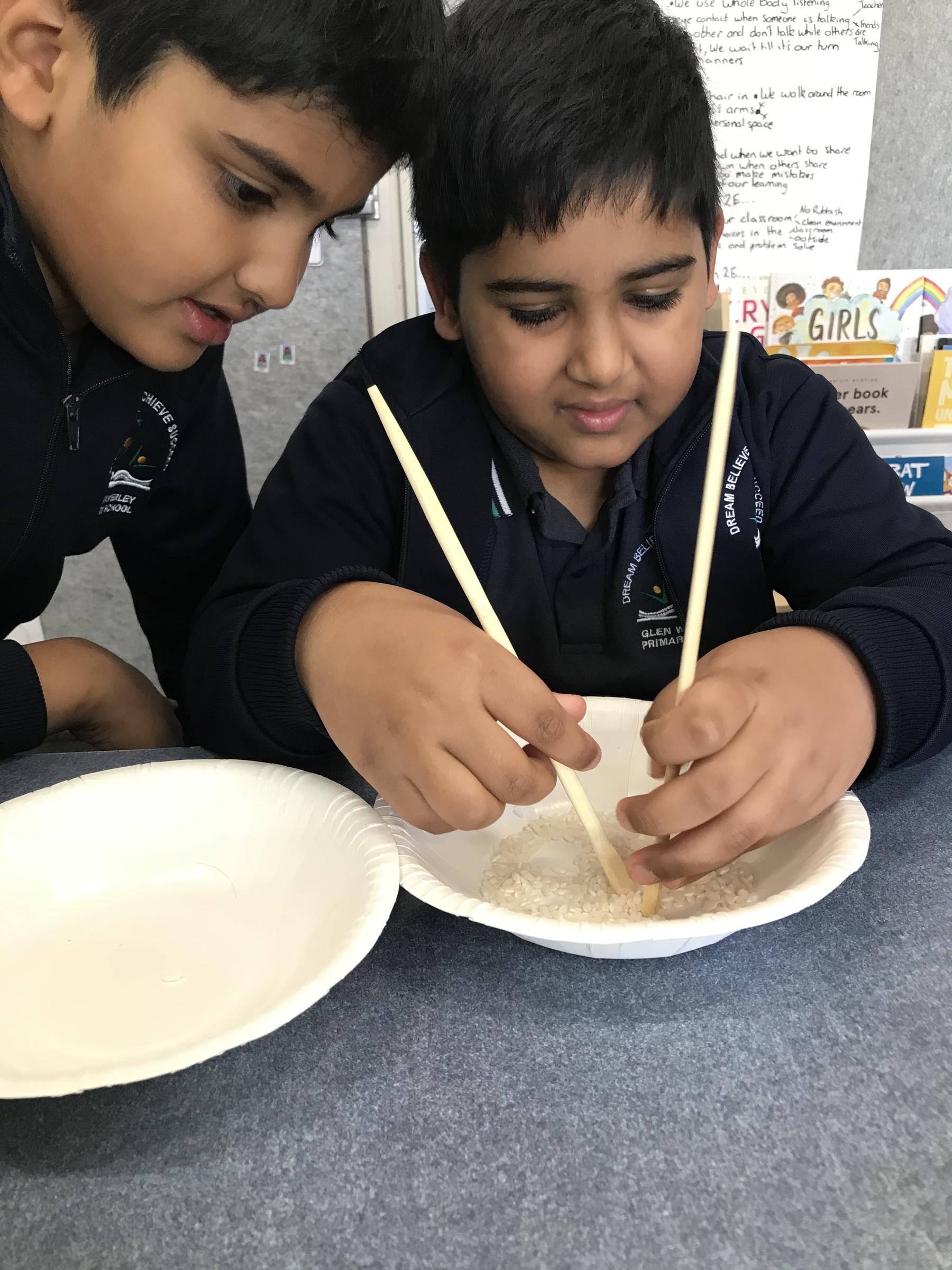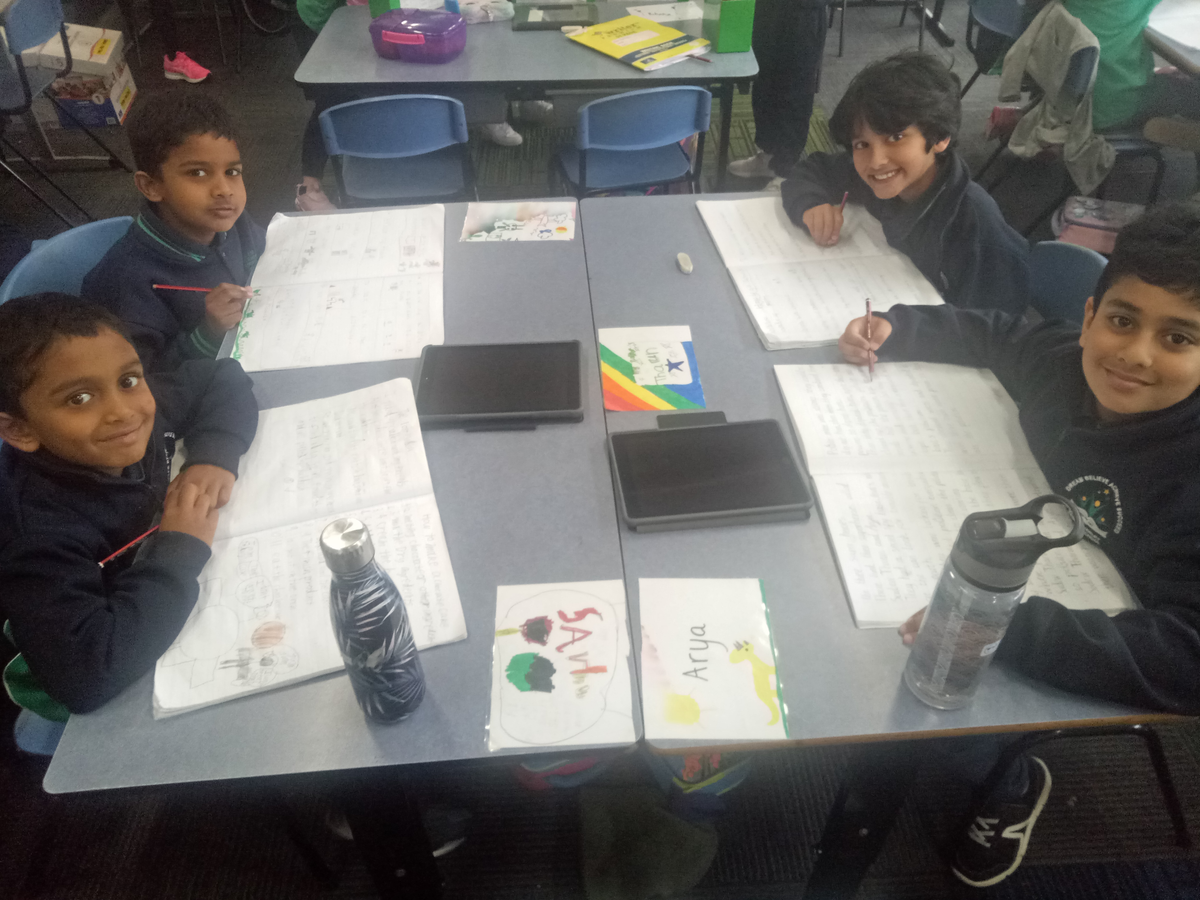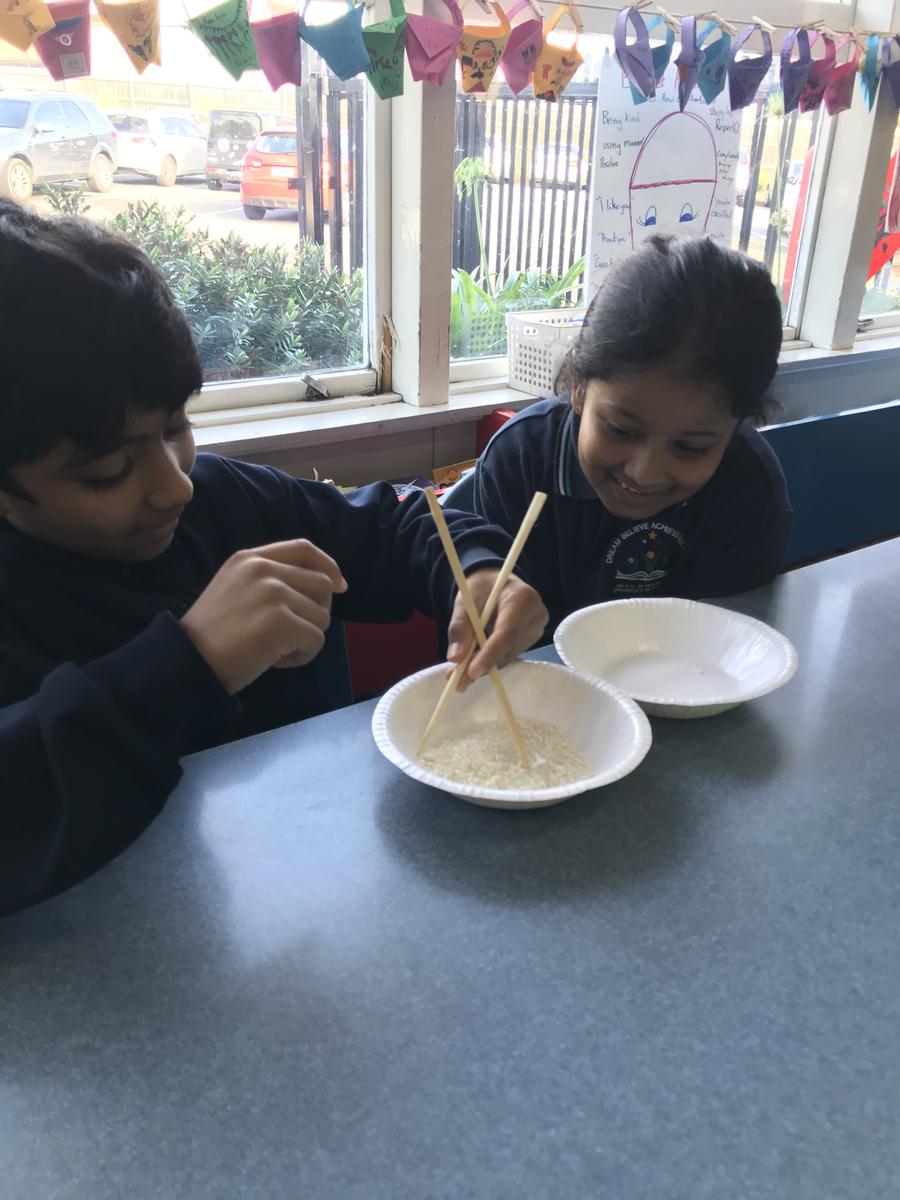Curriculum

ENGLISH
Reading:
In Term two, Level Two learners will continue to explore the whole school approach, CAFÉ. Our learners have set themselves reading goals using the CAFE learning areas of Comprehension, Accuracy, Fluency and Expand Vocabulary. Through reading workshops, learning conferences and sustained reading, the students are working on their reading skills through the lens of their goal. To align with our Writing units, the students will build their knowledge of Procedure and Persuasive text through explicit lessons focusing on structure and language features for each text. Through the continued use of mentor texts in the classroom, students will be exposed to new and interesting vocabulary that they are able to use in their writing thus transferring their knowledge across subjects.
Writing:
In Term Two, students will continue to develop their authorship through the lens of the VOICES whole school approach. They will develop their skills at integrating Voice, Organisation, Ideas, Conventions, Excellent Word Choice and Sentence Fluency throughout their writing pieces. Focus text types will include Procedure and Persuasive. Personalised learning goals will be organised by students through conferencing with their teacher and regularly reviewed in order to support them to continue to challenge themselves.
Spelling:
We will develop spelling concepts and skills throughout Term Two through an inquiry approach. As defined by student data and the school’s scope and sequence linked to the Victorian Curriculum, our foci this term will include long vowel sounds, double letters and syllables. Students will undertake individual Spelling Inquiries into personal words in order to enable them to be able to spell and understand a greater collection of words.
To support your child’s learning at home, you could:
- Encourage your child to write at home for authentic purposes, for example in a personal diary, a story to entertain a sibling or a thankyou card for a loved one.
- Ask your child what their writing goal is and discuss their successes and challenges.
- Build word family posters to help your child see the connection between spelling a range of different words (for example, dance, prance, stance).
Speaking and Listening:
Speaking and Listening will continue to be integrated across areas of the curriculum. Throughout each learning session, students are provided with opportunities to share their thinking, reflections and learning with their class. Students are also given the opportunity to collaborate with their peers on learning tasks which allows them to continue to build upon their listening and vocal communication skills.
MATHEMATICS
In Term Two, students will be deepening their understanding of Fractions as they consolidate the idea that a fraction represents a part of a whole or, any number of equal parts. We will also continue learning about Statistics and Probability exploring different ways to collect, analyse and represent data through a range of graphs.
We will also focus on Measurement and Geometry, using informal measuring tools such as a water bottle and formal metric cups to measure the volume and capacity of different objects. They will explore and make connections to real life everyday experiences such as cooking as they transfer their knowledge outside of the classroom.
Year 2 learners will continue to develop their understanding of Time, exploring multiple ways to represent ‘quarter to’ and ‘quarter past’ using digital and analogue clocks. Students will be encouraged to identify time during authentic experiences that will further the connection and transfer of their learning.
To support your child’s learning at home, you could:
- Ask your child what their current SURF goal is. What have been their successes and challenges? What is their ‘next step’?
- Encourage them to engage in everyday mathematical activities with the family (such as measuring in cooking, adding up while shopping).
- Ensure your child completes their Maths Home Learning weekly.
- Explain their thinking through abstract, pictorial and concrete methods.
- Break numbers into fractions or equal parts.
- Describe strategies using step-by-step thinking.
- Encourage your child to read both analogue and digital clocks and tell the time in different ways using the language ‘past’ and ‘to’.
- Encourage your child to assist you with the cooking by measuring out the ingredients, for example 1 cup of water.
INQUIRY
- Throughout Term Two, students will investigate the Inquiry question ‘How can repurposing materials impact the environment?’ Students will unpack the meaning of key words in our inquiry topic and make links to the Global Goal ‘Sustainable Cities and Communities’. The learners will explore the 5 Rs (Refuse, Reduce, Reuse, Repurpose, Recycle) and transfer their understanding to make positive changes within our school community. They will participate in the Urban Upcycle Incursion where they will ill learn how everyday materials can be repurposed or combined with other materials sustainably. To support your child’s learning at home, investigate ways in which your family might demonstrate the ‘Five R’s’ and see if you can also make some small changes to impact our environment positively.
YCDI
The You Can Do It Program will focus on the keys of Persistence and Resilience this term as the students develops their understanding of ‘challenges’. They will explore strategies to identify, react and overcome to challenges in a range of learning, physical and social experiences. As the learners prepare for Student Led Conferences, they will learn about the Confidence and Organisation keys and how to use particular strategies to present their learning portfolio as in an orderly and positive way.
To support your child’s learning at home, you could:
- Read with your child each night.
- Ask your child questions about their nightly reader book.
- Create a gratitude journal to write for the purpose of reflection on their day.
- Practice with your child on his/her weekly spelling words.
- Practice with your child a variety of number fluency skills such as counting to and from 1000 from any point and different strategies to solve Addition and Subtractions problems.


